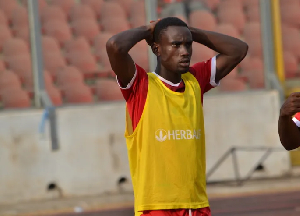A possible reaction of a newcomer to the aid debate might be one of surprise at the number of experts in the field who appear to agree on the shortcomings of aid to Africa and yet place disproportionate focus on the formulation of possible solutions. These concurrencies in thought often occur to the degree of individuals being able to independently but collectively pinpoint exact problematic areas. With all the arguments against aid and corresponding supporting evidence of its failure to alleviate the continent’s perpetual predicament being quite ubiquitous, a justification for the continued toeing of the line, steadily in propagation of the status quo is in glaring absence.
In the light of its past and continuing failings perhaps the time has come to innovate and challenge the short-comings of the Aid to Africa vehicle. The theory of ‘Dead Aid’ propounded by Dr Dambisa Moyo (http://dambisamoyo.com/) conveys such a paradigm shift; she expresses the need to wean Africa and Africans off ‘The Aid Drug’. An intriguing yet radical concept though it is, various speakers and experts in the field seem to inadvertently give credence, in varying extents to Dr Moyo’s outwardly implausible ideas by creating a piecewise mosaic of the ramifications and various failings of aid in Africa over the last half-century.
Attempting to lay out a framework for measuring the effectiveness of aid in Africa, makes clearer the phenomenon of the Aid Paradox. In so doing, the primary objective of aid to Africa is determined by mapping out major focus areas and destinations by country and economic sector. One notices from such an exercise that the claim that aid to Africa had failed might be amiss without a proper identification of its intended aim. From a thorough analysis, an observation is made that, the major drivers of development particular to the continent including agriculture, health and education had not been the primary focus of aid receipts in the last fifty years. Neither have the poorest or richest countries in Africa received a proportionally higher aid package relative their neighbours. From these insights, it becomes apparent that the purpose of aid to Africa has not been towards the development of the continent and its people, neither has it been purposed for the alleviation of the cycle of unending poverty nor as a reward or encouragement for progressive behavior on the continent. Hence to set these as a yardstick by which to determine aid’s achievements in Africa would be less than apt. Aid in Africa, has been successful in getting African countries to adopt donor countries’ recommendations of policy and to open up their respective markets.
A glimpse from another lens may be gleaned from the practical workings of aid through a Non-Governmental Organization’s (NGO) standpoint. This discussion encompasses a great deal of insights from the interplay of such organizations with the governments of recipient countries to the social and moral impacts made in the lives of the people these NGO seek to reach. As a case in point: The Hunger Project in Ghana focuses on creating change through the structure of a community; the bottom-up approach strives to empower the people at the grassroots level as a vehicle towards ensuring accountability and progress at higher levels. It focuses on education, health and economic empowerment among others whiles also placing emphasis on the elevation of women’s issues. THP seemed to have a sturdy mission and a sound methodology; However, despite the laudable passion with which these outfits take on their roles, it becomes apparent the magnitude of obstacles that they face. Ultimately, dealing with issues of unpredictable and inadequate cash flows and especially a lack of understanding of existing local situations in donor preferences present quite the challenge to such organizations in their ongoing drive towards sustainability.
In considering aid in Africa, China cannot be overlooked as a strategic investor. In Ghana, the national theatre, a beautifully crafted architectural piece in the heart of the capital’s business district stands in brilliant attestment to the presence of Chinese expertise. China’s policy comprises of issuing to Africa asset-backed loans in an effective bid to ensure against default in repayments. The preference of the Chinese lies in offering aid in the form of infrastructural arrangements with recipient countries. In contrasting the pre-existing definitions and approaches to aid in Africa by the Eastern and Western developing and developed world respectively, the result proves neither side as having the better methodology. It is all but a foregone conclusion that China in dealings on the African continent has no other purpose than to further her country’s interests. Like with the West, the onus lies on African nations in deciding how best to execute these relationships and ties to the best benefit of the citizenry.
The US President Barrack Obama in his maiden speech in Sub-Saharan Africa last year revisited a popular paradigm when he reiterated the call for “African solutions to African problems”. To further hit on this wholesome ideology, an expounding on the workings of the African Peer Review Mechanism (APRM) creates an agreeable motif. By virtue of its implementation directives, aid shifts accountability of African governments away from the people they govern to outside donors and in doing so disenfranchises citizens of African countries thereby undermining democracy. Several negative derivatives contrived from stringent conditionalities imposed on African countries play a large role in hindering the very framework of governance and obstructing the proliferation of a country’s social structures and development. As a crude comparison, reference may be made to the many documented psychological publications that outline the negative effects of extrinsic incentives in subduing intrinsic incentives and leading to a situation of reduced performance; these effects can be especially pronounced when/if these external incentives are to be eventually removed altogether. As a rough draft, this behavioural phenomenon might help to explain the cases of reverse development seen in several ‘aid-recipient’ African countries; nations that are in reality worse off today than they were at the attainment of independence.
To effectively counteract the numerous vices propagating from aid to Africa, impactful events led to the founding of the APRM by a group of erudite Africans including ex-Presidents Thabo Mbeki of South Africa and Olusejun Obasanjo of Nigeria. Underpinning the goals and objectives of the APRM are the establishment of a transparent and completely voluntary system of promoting good governance and sharing of best practices on the continent as a stepping stone towards forestalling some of the immense issues of governmental/leadership lapses spanning all of Africa’s shores. Several success stories maybe cited in proving the sustainability of the APRM’s model, including preliminary impacts in better management of ethnic diversity, corruption, poverty and equality, youth empowerment and gender issues among others. Despite facing political, logistical and capacity impediments, the APRM seems to be a proving its viability to critics in global arenas even to the extent of being used as a standard for decision-making pertaining to FDI in Africa.
In conclusion, a revisit of Dr Moyo’s thesis seems to lend itself as an adequate vehicle for a possible direction that the debate for or against aid Africa might emanate from. Does aid currently do for Africa what aid should? What should aid do for Africa? Who decides what aid should do for Africa? Does Africa need aid and if so for how long? These are questions Dr Moyo tries to tackle in an attempt to see beyond the myriad of arguments on both sides of the divide to get the heart of the matter. It would appear that there is no cohesive leading school of thought on the direction that aid should take in Africa, this possibly stemming from there being no centralized alignment of how aid is dispersed, implemented or accounted for in Africa. Perhaps it behooves Africans to take the lead in deciding what part to play in the ongoing chronicle. Be it that Dr Moyo proposes a most drastic approach; the moral in this story could well be contained not in the extremism of her solution but in its virtue of possibly being one.
by Selali Onuoha (Marie Nkiru) Graduate Student Cornell University College of Engineering
Resources: Institute for African Development, IAD (Sessions Fall 2009) • Aid Paradox: Why Turning off the Aid Tap Won't Do the Trick, Thomas Kwasi Tieku (Presentation given: November 5, 2009) • Making Aid Effective: An NGO's Experience, Naana Agyemang-Mensah (Presentation given: October 29, 2009) • China and the Global Aid Regime, Deborah Brautigam (Presentation given: October 1, 2009) • External Vs. Domestic Accountability in Development Aid: Role of NEPAD/APRM in Reshaping Democratic Governance in Africa, Kojo Busia (Presentation given: September 24, 2009)
*Disclaimer: This article expresses the views solely of the author and expands on her intellectual acumen and inferences.
Health News of Sunday, 4 April 2010
Source: --
















